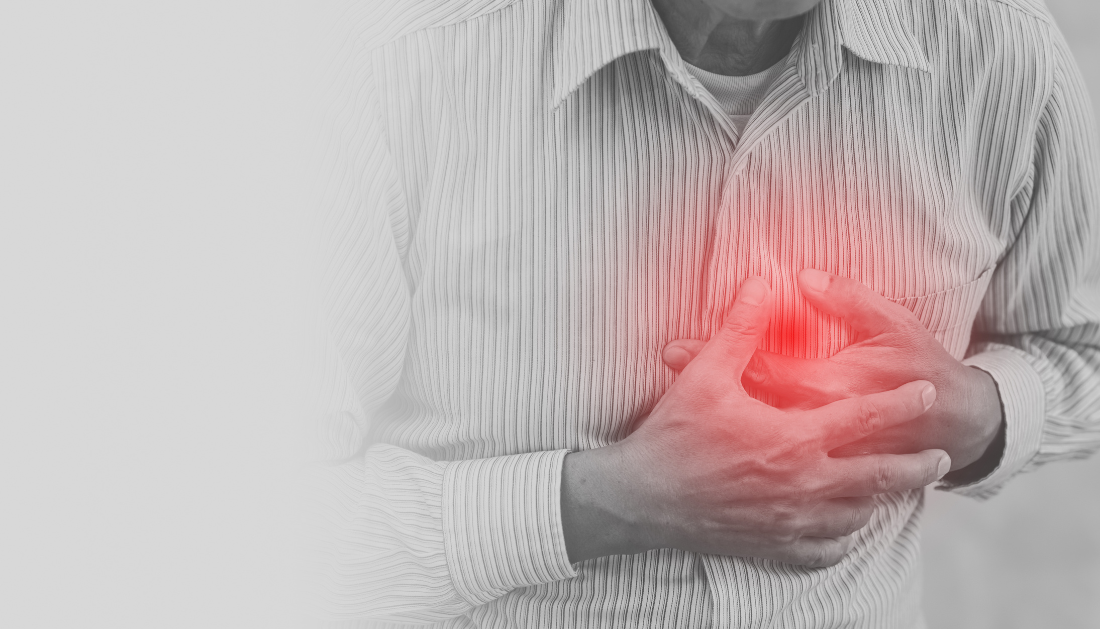

Cardiologists and radiation oncologists at Washington University School of Medicine in St. Louis pioneered the use of radiation therapy — a cancer-fighting method — to treat patients with ventricular tachycardia, a potentially fatal irregular heart rhythm. After analyzing the cardiac effects of radiation in a small number of these patients and simulating the effects of low-dose radiation in mice with heart failure, the research team discovered that low-dose radiation treatment appeared to enhance heart function in diverse kinds of heart failure. More research is needed before the researchers can test this therapy in heart failure patients, but the study implies that radiation’s effects on wounded hearts with high levels of inflammation may be more variable — and maybe helpful — than previously recognized.
The study, published on November 28 in the journal Med, reveals that low-dose radiation therapy improves cardiac function, at least in part, by reducing the amount of inflammatory immune cells in the heart muscle.
“The radiation therapy used to treat ventricular tachycardia is targeted to a specific location in the heart; however, a large portion of the rest of the heart gets a low-dose exposure,” said co-senior author and cardiologist Ali Javaheri, MD, PhD, an assistant professor of medicine. “We wanted to know how low-dose radiation affected the hearts of these patients.” Even though it addresses serious arrhythmia, there was concern that it could affect general cardiac function. We were astonished to discover the opposite: heart function appeared to improve after radiation therapy, at least in the short term.”
According to the Centers for Disease Control and Prevention, around 6.2 million American people are now living with heart failure. More than half of heart failure patients who are hospitalized for the condition die within five years after their initial hospitalization, showing the need for improved therapy. A failing heart eventually loses its ability to effectively supply the body with oxygenated blood. Heart failure is a complex disorder that can be triggered by a variety of factors, including a previous heart attack, a viral infection, or chronic arrhythmias such as ventricular tachycardia.
A group of nine patients with ventricular tachycardia were assessed with cardiac MRI before and after radiation treatment, with the MRIs demonstrating improved heart function soon after radiation. The patients’ hearts, in particular, showed better pumping capacity of the left ventricle, which feeds blood to the entire body. Because the improvement was observed only a few days after therapy, it was thought unlikely to be related to the lowering of the arrhythmia, which occurs more gradually over the next weeks and months.
The researchers also investigated the impact of similar low-dose radiation to the heart in groups of mice having heart failure from three different sources. Similarly to what was observed in human patients, the researchers discovered enhanced cardiac function in mice after radiation therapy, particularly in the left ventricle. Radiation therapy improved animal survival in mice with increasing heart failure, demonstrating that gains in heart function translated to improved survival.
The researchers discovered that failed mouse hearts that got radiation had less fibrosis — or scar tissue — and less cardiac macrophages, a type of immune cell that can cause inflammation in the heart. In general, the irradiated hearts had less cells that multiply quickly, such as immune cells and fibroblasts, which contribute to the development of heart failure. Normal cardiac muscle cells, on the other hand, rarely, if ever, divide.
“We know that rapidly dividing cells, such as cancer cells, are more susceptible to radiation death,” said co-senior author and radiation oncologist Carmen Bergom, MD, PhD, an associate professor of radiation oncology. “The effect we see in these hearts is likely more complex than a simple reduction in rapidly dividing inflammatory immune cells.” We are continuing our research to learn more about what else is going on, but we have been pleasantly surprised to see evidence that low-dose radiation in these hearts may lower inflammation and assist reshape the heart in a good way.”
The researchers intend to continue their study of patients already undergoing radiation therapy for ventricular tachycardia in order to learn more about radiation’s effects on the heart. The current study used MRI to demonstrate better heart function. Following that, the researchers intend to do more advanced investigations to see if there is evidence of reduced inflammation in human hearts, similar to what they discovered in mice.
more recommended stories
 Nanoplastics in Brain Tissue and Neurological Risk
Nanoplastics in Brain Tissue and Neurological RiskKey Takeaways for HCPs Nanoplastics are.
 AI Predicts Chronic GVHD Risk After Stem Cell Transplant
AI Predicts Chronic GVHD Risk After Stem Cell TransplantKey Takeaways A new AI-driven tool,.
 Red Meat Consumption Linked to Higher Diabetes Odds
Red Meat Consumption Linked to Higher Diabetes OddsKey Takeaways Higher intake of total,.
 Pediatric Crohn’s Disease Microbial Signature Identified
Pediatric Crohn’s Disease Microbial Signature IdentifiedKey Points at a Glance NYU.
 Nanovaccine Design Boosts Immune Attack on HPV Tumors
Nanovaccine Design Boosts Immune Attack on HPV TumorsKey Highlights Reconfiguring peptide orientation significantly.
 High-Fat Diets Cause Damage to Metabolic Health
High-Fat Diets Cause Damage to Metabolic HealthKey Points Takeaways High-fat and ketogenic.
 Acute Ischemic Stroke: New Evidence for Neuroprotection
Acute Ischemic Stroke: New Evidence for NeuroprotectionKey Highlights A Phase III clinical.
 Statins Rarely Cause Side Effects, Large Trials Show
Statins Rarely Cause Side Effects, Large Trials ShowKey Points at a Glance Large.
 Anxiety Reduction and Emotional Support on Social Media
Anxiety Reduction and Emotional Support on Social MediaKey Summary Anxiety commonly begins in.
 Liquid Biopsy Measures Epigenetic Instability in Cancer
Liquid Biopsy Measures Epigenetic Instability in CancerKey Takeaways Johns Hopkins researchers developed.

Leave a Comment